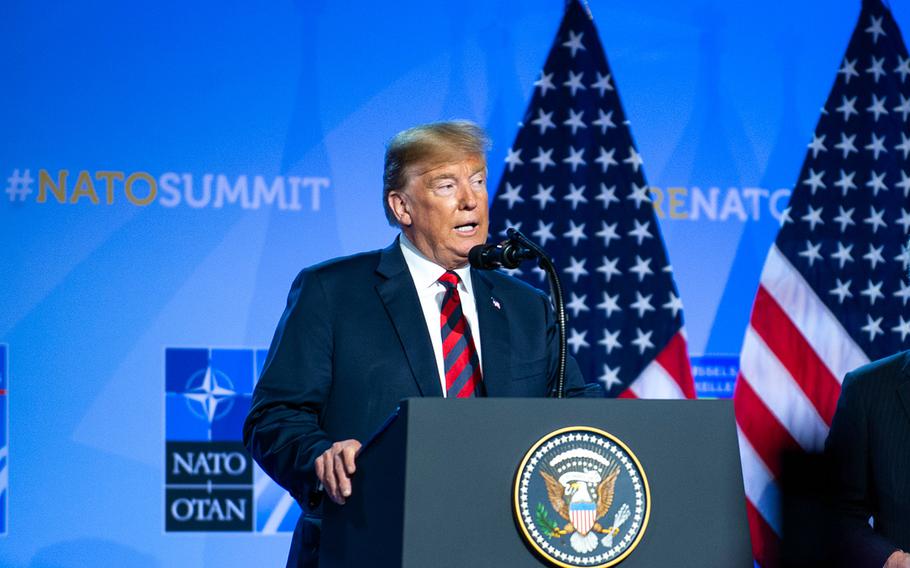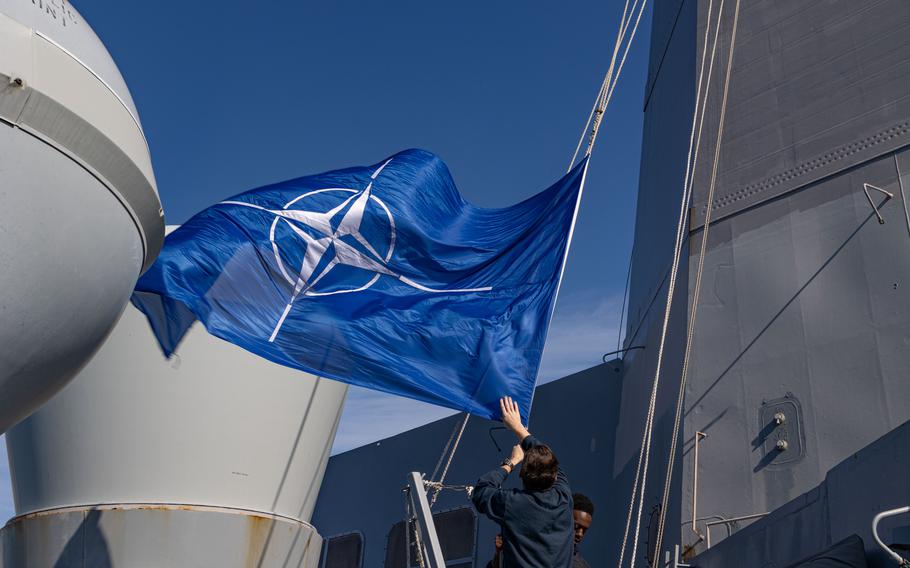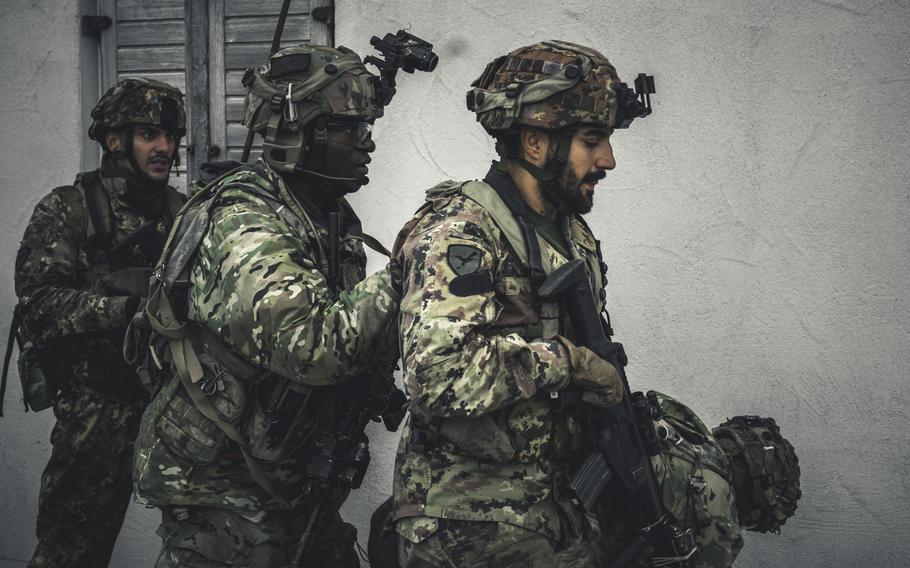
Then-President Donald Trump speaks during a press conference at the 2018 NATO summit in Brussels. Should the former president win the 2024 election, NATO will likely see a significant pullback of U.S. involvement, according to a Center for Strategic and International Studies report. (NATO)
The U.S.-NATO relationship is likely to enter a new era regardless of who wins the White House in November, according to a recent think tank report, which says neither candidate regards the alliance as highly as President Joe Biden.
But the differences in approach between Republican nominee Donald Trump and Democratic rival Kamala Harris couldn’t be more dramatic, as a Trump win would cause “a deep crisis” for NATO, the Center for Strategic and International Studies said.
The Washington-based think tank’s analysis examined the foreign policy implications of potential Trump and Harris administrations on a range of issues, from China to terrorism threats in the Middle East and Africa.
But the differences were perhaps most stark when it comes to the American role in NATO and how the U.S. military operates in Europe.

A NATO flag is raised aboard the USS Mesa Verde Sept. 18, 2023, during a multinational exercise off the coast of Latvia. Regardless of the outcome of the upcoming U.S. presidential election, the country's relationship with NATO is likely to enter a new era, according to a new report by the Center for Strategic and International Studies. (Michele Clarke/U.S. Marine Corps)
“Should former president Trump return to the White House, NATO will likely see a significant pullback of U.S. involvement, creating a deep crisis inside the alliance,” the report said. “Should Harris win, the changes will be more subtle.”
The report, which was released Thursday, cautioned that an abrupt pullback of U.S. forces from NATO would leave European countries in the bloc badly exposed.
“Europe faces an acute threat from Russia, as well as considerable instability in its periphery,” according to the report. “It will take many years, if not decades, for Europe to build its own ‘European pillar’ of NATO to reduce the conventional military demands on U.S. forces.”
While Harris at the start is likely to continue with the policies of the Biden administration, her presidency would nonetheless represent a post–Cold War generational shift that involves less attachment to NATO and Europe, report authors Max Bergmann and Sissy Martinez wrote.
Biden came of political age during the Cold War and has always seen NATO as central to security issues.
While Harris will remain committed, “European allies will constantly seek reassurance to an extent that Harris cannot satisfy,” the report said. “She will likely find it difficult to match Biden’s engagement, which has felt deeply personal and rooted in decades of engagement.”
Meanwhile, the implications of a second Trump term would amount to political whiplash from the Biden era.
“Trump has rhetorically attacked NATO for decades but now appears to have concrete plans to follow through on reducing U.S. involvement in the NATO alliance,” the report said.
While a complete exit from NATO is unlikely, policy planners with ties to Trump have suggested concepts such as a “dormant NATO” that would involve putting the alliance to sleep until it’s needed at some point in the future.
Turning over responsibility for the conventional defense of the Continent to Europeans also would be an expected policy change from Trump, the report said.

A U.S. Army paratrooper with the 173rd Airborne Brigade conducts a simulated attack with Italian troops during training at Hohenfels, Germany, Sept. 13, 2024. Regardless of the outcome of the upcoming U.S. presidential election, the country's relationship with NATO is likely to enter a new era, the Center for Strategic and International Studies says in a study released Sept. 26, 2024. (Joskanny Lua/U.S. Army)
While the analysis didn’t detail how U.S. troop levels in Europe could be cut back, at the end of his first term Trump sought to dramatically reduce force levels in Germany.
That plan was canceled by Biden, who sent additional forces to Europe in the aftermath of Russia’s 2022 full-scale invasion of Ukraine.
Ramped up defense spending in recent years by European nations is unlikely to satisfy Trump and his political allies, who are “ultimately frustrated by Europe’s military dependence on the United States,” the report said.
Over the years, U.S. opposition to creation of a European NATO pillar meant that an effort that should have begun after the Cold War never got off the ground, the authors said.
They urged patience from a potential Trump administration because such an effort will take “considerable time.”
Meanwhile, a Harris administration, should get behind efforts to shift more of the burden to the Europeans, given the challenges that Washington is likely to face in the Indo-Pacific region in the years to come, the report said.
“The United States’ insistence on the European Union doing more on defense — from generating a common pool of funding to harmonizing Europe’s fractured defense industrial landscape — is critical,” according to the study findings.